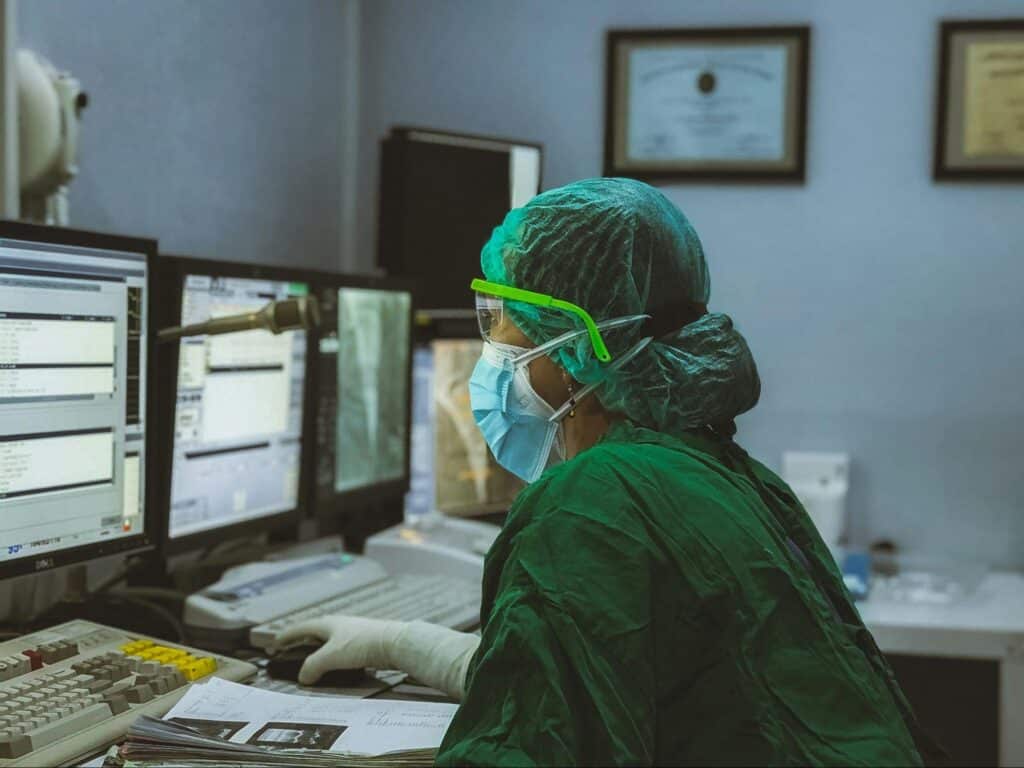In Hawaii, healthcare is undergoing a dynamic transformation as digital technology reshapes the landscape. Medical assistants, traditionally indispensable in clinical settings, are seeing their roles expand and evolve, adapting to the demands of this new era. As Hawaii embraces digital advancements, the need for medical assistants who are tech-savvy and adaptable has never been greater.
This shift is about redefining the healthcare experience. Medical assistants are now on the front lines, ensuring that the integration of technology into healthcare services enhances patient care and operational efficiency. From managing electronic health records to supporting telehealth services, their responsibilities are growing, making their contributions more vital than ever.
Medical assistant, Alana Song of Hawaii, understands that, by understanding these changes, we can better appreciate the evolving role of medical assistants and how they contribute to a holistic healthcare system in Hawaii. With a focus on leveraging technology to improve patient outcomes and streamline healthcare processes, these professionals are key players in the state’s health sector.
The Digital Transformation of Healthcare in Hawaii
Hawaii is experiencing a digital revolution in its healthcare system, bringing modern solutions to age-old challenges. As technology becomes more embedded in everyday life, healthcare practices in the islands are evolving in significant ways. From remote telehealth services reaching secluded communities to the efficient management of patient data through electronic health records, the digital landscape is reshaping how Hawaiians receive medical care.
Telehealth’s rise in Hawaii is a necessity. For those residing in rural areas, traveling to a doctor’s office can mean hours on the road or a costly inter-island flight. Telehealth allows patients to consult with healthcare professionals from the comfort of their home, breaking down geographic barriers. This digital service has transformed patient care by making it more accessible and immediate.
“Patients can now receive advice, treatment plans, and even follow-ups through their smartphone or computer,” says Alana Song. “This has enhanced patient satisfaction and engagement in their health journey.”
Healthcare providers in Hawaii are embracing Electronic Health Records (EHR) systems to organize and manage patient information. EHRs have become a cornerstone in the effort to provide seamless and efficient healthcare.
EHR systems streamline patient data, making it instantly available to healthcare providers across the state. Instead of sifting through piles of paper records, a doctor can quickly retrieve a patient’s medical history, medication lists, and allergy information with just a few clicks. This instant access means faster, more informed decision-making, ultimately leading to better patient outcomes.
The integration of EHRs also enhances communication between different healthcare providers. For instance, if a patient needs a specialized service, their general physician can easily share the necessary information with the specialist, ensuring a coordinated care approach. This interconnectedness fosters a more collaborative environment, reducing the risk of medical errors and duplicative tests.
EHRs don’t just simplify the lives of healthcare providers; they empower patients too. With patient portals, individuals can access their own health records, schedule appointments, and communicate with their doctors online. This transparency encourages patients to take an active role in their healthcare, promoting better health literacy and management.
Evolving Roles of Medical Assistants
Electronic health records (EHRs) allow for easy access and updating of patient information, drastically reducing the time spent on documentation. Medical assistants can instantly retrieve patient histories and lab results, enabling them to provide more personalized care. The shift to digital record-keeping not only boosts efficiency but also enhances accuracy, improving overall patient outcomes.
The use of scheduling software reduces the risk of overbooking or double-booking patients. By providing real-time updates, these tools help medical assistants manage their workflow more effectively. This ensures that patients receive timely care, enhancing their overall experience. Technology becomes a powerful ally, empowering medical assistants to be more present and engaged with each patient.
With the rise of telehealth, medical assistants find themselves at the forefront of a revolution in patient care. Telehealth enables remote consultations, breaking down geographical barriers and providing healthcare access to patients across Hawaii.
Notes Alana Song, “Medical assistants play a crucial role in this transformation, supporting both healthcare providers and patients in adopting this new mode of care.”
A key responsibility is assisting with telehealth visits. Medical assistants prepare patients by ensuring they have the necessary technology set up, such as video conferencing tools. They may also assist in the technical aspects, ensuring a smooth connection between the patient and the healthcare provider. This technical support is essential, particularly for patients who may not be familiar with digital tools.
Remote patient monitoring is another area where medical assistants shine. These tools allow for the tracking of patients’ vital signs and health metrics from a distance. Medical assistants help interpret this data, relaying important information to healthcare providers. This proactive approach ensures that potential health issues are addressed promptly.

Photo: Unsplash.com
Challenges Faced by Medical Assistants in the Digital Age
In the Hawaiian healthcare system, medical assistants are the heart and soul of patient care. As technology evolves, so too do the challenges these dedicated professionals face. It’s crucial to recognize these hurdles to help support and enhance their roles.
As healthcare becomes more technology-focused, there is a growing concern about how this shift impacts patient interactions. Medical assistants play a vital role in ensuring that the heart of healthcare—human connection—remains strong.
By recognizing these challenges, there’s a path forward for creating a more supportive environment for medical assistants, helping them to thrive amid the digital evolution. These professionals are essential to the healthcare experience, anchoring the human element in an increasingly digital world.
The Future of Medical Assistant Roles in Hawaii
Medical assistants in Hawaii have always been the backbone of healthcare but now find themselves at the forefront of a digital transformation.
“The integration of technology in healthcare has reshaped the landscape, bringing both challenges and opportunities for professionals in this essential role,” says Song.
As healthcare evolves, so do the responsibilities and prospects for medical assistants on the islands.
In a digital healthcare environment, career paths for medical assistants are expanding like never before. With the growing reliance on electronic health records (EHRs) and telemedicine, medical assistants have the chance to become crucial players in this new ecosystem.
Digital tools and platforms offer ongoing learning opportunities. By staying up-to-date with the latest software and technologies used in healthcare, medical assistants can enhance their skill sets, making them more valuable to employers.
As medical teams aim for efficient digital integration, there’s a growing need for leaders who can guide the transition. Medical assistants with a robust understanding of digital systems can step into roles that involve training peers and managing digital health projects.
Technology allows medical assistants to take on more complex tasks. Duties that were traditionally reserved for nurses or doctors, like remote patient monitoring, can now be managed by medical assistants with the right training.
The future for medical assistants in Hawaii is filled with potential. While challenges exist, the move toward digital healthcare presents numerous pathways for growth. Medical assistants can seize these opportunities, transforming their roles along with the healthcare system itself.
Published by: Holy Minoza









